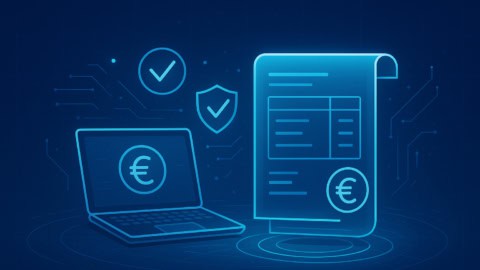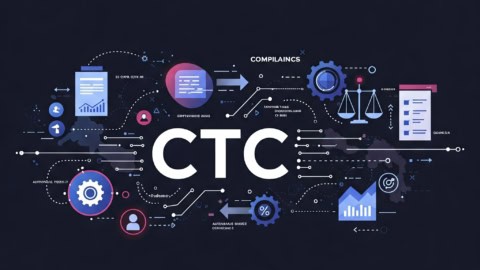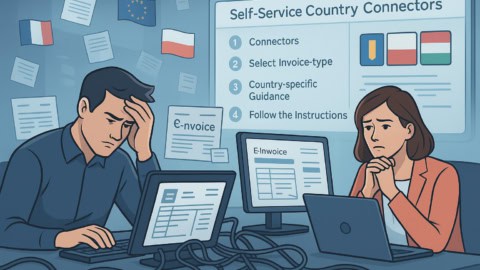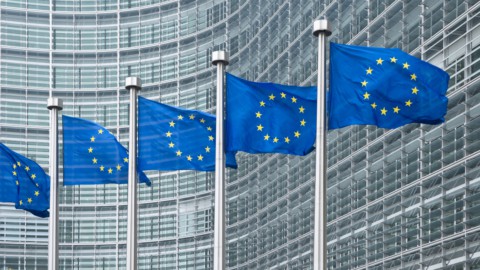Like several other countries in Europe, Poland is taking a further step towards Continuous Transaction Controls (CTC). In this article we provide you with all the facts, deadlines and details on B2B e-invoicing in Poland. If you are after a general overview of e-invoicing in Poland, please see our other article “E-invoicing in Poland”.
Update: Postponement of Mandatory Electronic B2B Invoicing in Poland to 2026
Poland is in the process of further optimizing its national e-invoicing system, Krajowy System e-Faktur (KSeF). Recent discussions and announcements have revealed significant changes and timelines.
The Polish Ministry of Finance has confirmed a phased approach for the mandatory implementation of KSeF:
- February 2026: Mandatory for “large taxpayers” (companies with an annual turnover exceeding 200 million PLN in 2025)
- April 2026: Mandatory for all other taxpayers
This revised timeline provides businesses with additional time to prepare for the mandatory electronic invoicing.
Who is affected?
All Polish companies that carry out B2B transactions in Poland are affected by the new regulation. This also includes branches of foreign companies within Poland.
What standards are used and how is delivery carried out?
Poland uses its own national e-invoice format for the transmission of electronic invoices. To enable the implementation of e-invoicing on a voluntary basis, the Polish Ministry of Finance has made a number of technical documents available for download:
- The XML schema used for the invoices (in Polish)
- XML schema documentation (in Polish)
- XML schema documentation (in English)
- Sample files (in Polish)
Experience from other countries such as Italy shows that the English translation of the documentation may not be kept up to date. Companies implementing the standard should therefore always rely on the original version, and work with translation tools such as Google Translate or DeepL if necessary.
Invoices are sent to KSeF via a dedicated API (not via Peppol, as is the case in other European countries such as Croatia). Consumers can then view invoices via a dedicated platform, with KSeF retaining the e-invoices for a period of ten years (we will add more information on the API specification to this article once made official).
What is still unclear?
Since companies are already able to exchange electronic B2B invoices on a voluntary basis, all important points as described above have been clarified – only the exact API specification is still outstanding (information on this will follow in this article as soon as it is available).
B2B e-invoicing in Poland – helpful links
General information on B2B e-invoicing in Poland can be found on the official government website. More details on KSeF can also be found on the Polish website, Informacje o KSeF. At the top of the article you will also find links to schema documentation as well as sample files.
Please note that both links require knowledge of Polish or a reliable translation tool.
How do I ensure I stay compliant?
Affected companies must implement the new B2B e-invoicing regulations in Poland in order to continue doing business there. Since Poland is only one of a number of countries introducing and amending e-invoicing regulations, however, it may make sense to look past a Poland-specific solution and implement a future-proof and flexible solution for e-invoicing more generally.
In order to ensure technical compliance and implement the requirements and advantages of e-invoicing in one’s own company, e-invoicing processes can either be introduced and operated internally or outsourced to a specialised service provider (such as ecosio).
Unfortunately, handling e-invoicing internally usually requires a lot of time and effort. Not only does setting up an e-invoicing solution require significant technical expertise, the processes that are ultimately used also have to be monitored on an ongoing basis and adjusted as regulations change. When errors occur, rapid and proactive troubleshooting is also necessary.
On the other hand, if a specialised service provider is used, it may be the case (depending on the provider selected) that all e-invoicing tasks can be handed to them. With external experts handling everything from technical updates to ongoing message monitoring and troubleshooting, internal teams are thus free to concentrate on what it is they do best. Extending/amending such a solution when needs evolve or new e-invoicing regulations are introduced (in Poland and elsewhere), is also far simpler, as it doesn’t involve any internal changes.
For more information on current and upcoming regulations across Europe, see our white paper…
How ecosio helps companies implement e-invoicing
As an ‘EDI as a service’ provider, ecosio offers technical e-invoicing compliance as an all-inclusive, hassle-free package for those companies looking for a simple, futureproof solution.
To find out more about our e-invoicing services, please visit our E-invoicing and Peppol solution page. Alternatively, if you have any questions why not contact us directly? We are always happy to provide assistance however we can and look forward to helping you implement a successful e-invoicing solution.














